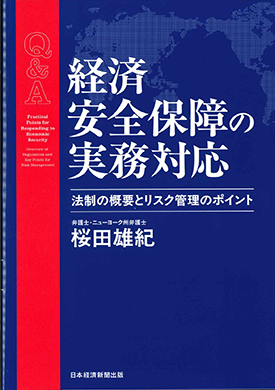-
Articles
Navigating Through Thailand’s Framework of Trade Measures, and the Dilemma Between Facilitating Free Trade and Protecting its Domestic Industry
Almost every country in the world either engages in trade or is heavily reliant on the import and export of raw materials and finished goods. Trade and commerce are beneficial to the development of a country’s economy because it opens the door to an inflow of foreign investment, a greater variety of available goods and services, and the creation of job opportunities. However, the downside of trade and commerce is that not all parties may benefit from the trading of a particular good or service. Domestic producers and distributors whom once held a strong market position may subsequently find that they are unable to compete with the lower priced imported foreign goods which are now flooding the market. In such scenario, it may be necessary for a country to take certain actions, such as by imposing trade measures, against such imported foreign goods in order to balance the scale and to protect domestic production.
Trade measures are protectionist trade barriers that serve to protect domestic industries from unfair competition caused by the increased import of foreign goods, which threatens the livelihood of domestic industries. A brief overview of the different types of acts committed by foreign importers and exporters resulting in injury to the domestic industry, and the applicable trade measures under Thai law is set out in the table below.
|
Act Committed |
Applicable Trade Measure/Remedy |
|---|---|
|
Dumping: Foreign companies export goods to another country at a price which is below the normal domestic price in the importing country. |
Anti-Dumping Duties: Duties/taxes are imposed on imported goods in order to compensate for the difference between their export price and their normal domestic price in the importing country. Anti-dumping duties can generally only be imposed for a period not exceeding 5 years from its imposition or from the effective date of the most recent review.1 |
|
Circumvention: Practices carried out by foreign producers, exporters or assemblers in order to avoid the trade measures or duty payment imposed on goods by the importing country. Examples of such practices include modification to the goods and transshipment of goods. |
Anti-Circumvention Measures: Extension of anti-dumping or countervailing duty to the goods in question. |
|
Subsidies: A form of financial aid or support granted by a government to a producer or seller of goods in order to increase the export/competitiveness of such goods in a particular industry. |
Countervailing Duty: Collection of duty (i.e. additional duty on top of ordinary import tax) in order to offset the negative effects of subsidies on the domestic industry. |
|
Increased import of foreign goods, which results or may result in injury to the domestic industry of the importing country |
Safeguard Measures: Temporary measures (usually in the form of import duty or restriction on the amount of imports of particular goods) imposed by the importing country on particular goods from all countries in order to allow its domestic industry to recover and compete with such imported foreign goods. Safeguard measures may generally be imposed for a period not exceeding 4 years.2 |
1 Domestic Law and Regulations
The primary legislations that regulate trade measures in Thailand are the Anti-Dumping and Countervailing Act B.E. 2542 (1999) as amended (the “AD/CV Act”) and the Safeguard Measures Against Increased Imports Act B.E. 2550 (2007) (the “SG Act”), which are generally in line with The World Trade Organization (WTO) rules on trade remedy investigations. The AD/CV Act addresses the procedures and rules on anti-dumping, countervailing and anti-circumvention investigations, while the SG Act addresses the procedures and rules on safeguard measures and investigations. The AD/CV Act and the SG Act are both supplemented by ministerial regulations and notifications issued by the Department of Foreign Trade (the “DFT”), the Ministry of Commerce (the “MOC”), the Committee for Anti-Dumping and Countervailing, and the Safeguard Committee.
The DFT, under the MOC, is in charge of initiating trade investigations under the supervision of the Committee for Anti-Dumping and Countervailing, and the Safeguard Committee (each, a “Committee”, and collectively the “Committees”), whereby each Committee is empowered to authorize the initiation and termination of trade investigations as well as to impose measures on subject imports (i.e. the goods in question).
It should be noted that although the WTO rules on trade remedies do not have a binding effect under Thai law, in the case where Thai laws are silent on a particular trade issue, the interested parties may raise the applicability of the WTO rules on the issue in question.
2 Procedures for Initiating an Investigation
The procedures for initiating an investigation for anti-dumping (“AD”), countervailing (“CV”), anti-circumvention (“AC”) and safeguard (“SG”) cases generally commence the same way. Firstly, (1) a written petition may be submitted by the applicant to the DFT, who will then pass the petition on to the relevant Committee for consideration as to whether an investigation shall be initiated3; or (2) the DFT itself will begin the initiation process (only in the case of AD, CV or AC investigations)4.
It should be noted that for the first scenario (in which the process is initiated by the submission of a petition by an applicant), certain requirements must be met by the applicant in order to be eligible to file such petition to the DFT. Particularly, the petition submitted by the applicant must be supported by domestic producers of like products whose collective output reaches the threshold percentage (e.g. one half or one quarter) of the total amount of domestic production of such product, as prescribed in the criteria under the relevant law.
In the case where the petition is accepted by the relevant Committee, the DFT will begin the investigation process by notifying the relevant governments of the countries in which the foreign importers, exporters or assemblers originate from, and the notice of initiation will be published in the Government Gazette, and all interested parties will be notified about the initiation of the investigation by the DFT. Following the initiation of the investigation, interested parties will have to present written opinions to either support or object the petition within the prescribed deadline. The timeline for completing the trade investigations from the initiation stage until completion/issuance of the final determination varies for each type of investigation as set out below:
- AD: within 1 year (with a possible extension of up to 6 months if necessary);5
- SG: within 270 days (with a possible extension of up to 90 days if necessary);6
- AC: within 9 months (with a possible extension of up to 3 months if necessary);7 and
- CV: within 9 months (with a possible extension of up to 3 months if necessary).8
Following the issuance of the final determination of the DFT, in the case where an interested party is not satisfied with the final determination, the party may file an appeal to the relevant Thai court. For AD and AC cases, an appeal may be filed to the Central Intellectual Property and International Trade Court (the “IPITC”) within 30 days from the date of the final determination,9 and subsequently to the Court of Appeal for Specialized Cases (the “Court of Appeal”) if the interested party is not satisfied with the judgment or order of the IPITC.10 If the interested party wishes to appeal the judgement of the Court of Appeal, an appeal may be filed to the Supreme Court of Thailand provided that approval is granted.11
On the other hand, for SG and CV cases, in the absence of an explicit legal provision regarding the appeal process for such cases, appeals on the final determinations or decisions of SG and CV cases would be subject to review by the Administrative Court of Thailand pursuant to the rules prescribed under the Act on Establishment of Administrative Courts and Administrative Court Procedure B.E. 2542 (1999) as amended and, subsequently, the Supreme Administrative Court of Thailand.
3 Enforcement in Practice and Future Outlook
According to the publicly available information on the DFT’s website, AD investigations and sunset reviews of AD duties for imported foreign products are the most common types of trade investigations conducted by the DFT, whereby the most common goods subject to AD duties are iron and steel products.
However, other than AD investigations, there is little development for initiating investigations for other types of trade cases. To date, there has only been 1 AC investigation initiated against imported foreign products, not more than 10 SG cases initiated against imported foreign products, and the DFT has not initiated any CV investigations against imported foreign products. Due to the relatively recent enactment of the AC related laws, it is possible that the DFT will put the enforcement of such laws into practice and initiate more AC cases in the future. Furthermore, given that Thailand remains a popular destination for the manufacturing and assembly industries, Thai laws on trade measures are likely to evolve in order to keep up with the ever-changing business landscape and, in such case, domestic and foreign producers, importers and exporters alike will have to keep a keen eye on such legal developments.
Undoubtedly, Thailand will face a difficult dilemma over how to strike a balance between facilitating free trade to provide product access to consumers, and imposing trade measures to help domestic producers. The Committee will need to carefully consider the matter before rendering a decision that will produce an equitable and fair outcome for the stakeholders.
Jirapong Sriwat
Partner
Apinya Sarntikasem
Partner
Soraviya Chasombat
Associate
1Section 57 of the AD/CV Act.
2Section 33 of the SG Act.
3Sections 32 – 33 of the AD/CV Act and Section 13 of the SG Act.
4Sections 32, 71 and 71/5 of the AD/CV Act.
5Section 54 of the AD/CV Act.
6Section 25 of the SG Act.
7Section 71/16 of the AD/CV Act.
8Section 71/16 of the AD.CV Act.
9Sections 61 and 71/20 of the AD/CV Act.
10Sections 38 and 39 of the Act Establishing the IPITC B.E. 2539 (1996).
11Section 40 of the Act Establishing the IPITC and Section 247 of the Civil Procedure Code.









He advises on a wide range of merger-and-acquisition transactions, joint ventures, foreign direct investments, general corporate, international corporate finance, and restructurings. His expertise is advising, structuring and leading complex transactions both within and outside of Thailand. He regularly represents, among others, Japanese, Thai and international investors, international investment banks, international private equity investors, hedge funds and international corporations and financial institutions. His main areas of practice include public and private mergers and acquisitions (takeover rules), legal due diligence, joint ventures, fund raising, listings, block trades, stock exchange and securities exchange related laws, restructuring of shareholdings and general corporate advice. His additional areas of practice also cover banking and finance, renewable energy in Japan and Thailand, exchange control law, labor law, and debt restructurings. Before setting up the Bangkok office of Nishimura & Asahi in 2013, he worked with Linklaters for almost a decade. He is also a registered arbitrator of the Thai Arbitration Institute (TAI) with the areas of expertise in corporate M&A, joint venture, banking and finance, capital markets, debt restructurings and energy.